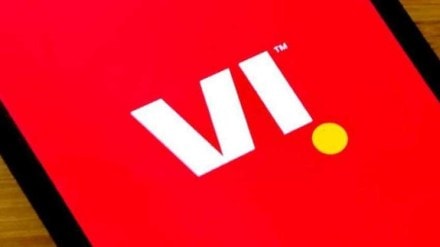After launching commercial 5G services in Mumbai, Vodafone Idea plans to expand its next-generation telecom offerings to Delhi, Chandigarh, Bengaluru, and Patna in April, the company said in an investor update on Wednesday.
The update also outlined Vodafone Idea’s strategy to drive growth on the back of digital transformation, customer experience, and enterprise partnerships. The update comes weeks after it got relief in the form of the government’s approval to convert part of its spectrum debt amounting to `36,950 crore into equity, providing the telco with cash flow ease.
Post the conversion, the government will hold 48.99% in the telco, while promoters Vodafone Group UK (16.07%) and the Aditya Birla Group (9.5%) will hold around 26.2%.
Vodafone Idea reiterated that its investments will focus on 17 circles to improve competitiveness in priority markets as it undertakes 4G coverage and capacity expansion and 5G rollout.
As a result of these initiatives, it expects its 4G population coverage to reach 90% by March 2026, as compared to 82% at the end of March 2025, and 74% at the end of March 2020.
Vodafone Idea has given a capex guidance of Rs 10,000 crore for FY25 focussed towards its network expansion initiatives, and had deployed Rs 5,000 crore capex in the first nine months of FY25, according to disclosures made at the end of the December quarter.
It also said that late adoption of 5G is “leading in embracing latest advanced technology products and cost efficiency”, in the investor update filed to the exchanges.
On improving average revenue per user (ARPU), the telco said its network upgradation provides the opportunity to upgrade customers to higher tariff data packs and plans by migrating 2G customers to 4G.
According to data in the presentation, out of 199.8 million subscribers, Vodafone Idea has 73.8 million non-data subscribers. “Nearly 37% of subscribers can potentially upgrade to 4G network,” the telco said, adding that users on unlimited data plans have three times the ARPU of those not on these plans.
Vodafone Idea also said that future tariff hikes, especially in light of increased data consumption, provide headroom for ARPU growth. The telco’s chief executive Akshaya Moondra has long maintained that the industry needs a revision not only in base tariffs, but also in the way that telcos charge users.
His stance has been that the practice of a blanket charge, irrespective of the quantum of data consumption by the user, is not sustainable and will not help improve returns on capital invested. Instead, Moondra has said, telcos need to start charging higher to users who have higher consumption.
According to the performance indicator report released by the Telecom Regulatory Authority of India (Trai), blended ARPU (consumers and enterprise) has grown at a CAGR of 4.5% between September 2016 and September 2024. Average wireless data consumption per subscriber per month, however has grown significantly faster at a CAGR of 75.9% from 0.2 GB to 21 Gb during the same period.
This, Vodafone Idea said, gives significant headroom for growth for ARPU since data consumption has increased and consumers’ ability to pay has been established. “Prices need further uptick to generate reasonable returns and support future investments,” it said.
Apart from consumer mobility business growth, the telco said it will drive growth in the enterprise segment through verticals like IoT solutions, strengthened cloud offerings, and business security solutions.
